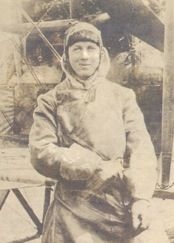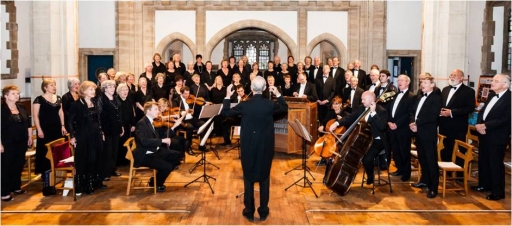Members of the London Pro Arte Choir are due to travel to Ypres in July 2014 to sing under the Menin Gate, bringing back memories of past relatives who fought in the First World War.
The choir has a long tradition of European visits, with a tally of concerts in France and Belgium, and choir members asked to go to Ypres this year as their part in commemorating the Centenary of the First World War.
Since 1st November 1929, the Last Post has been sounded at the Menin Gate Memorial in remembrance of British and allied soldiers who died defending Ypres. The ceremony has taken place every evening, except during the German occupation of Belgium from 1940 to 1944.
This year the choir will be singing after the Ypres Buglers’ Last Post on Sunday 6th July. The two pieces that will be performed are Britten’s Hymn to St. Peter and Douglas Guest’s setting of the Ode of Remembrance.
The Menin Gate, opened in 1927, bears the names of more than 54,000 officers and men from UK and Commonwealth Forces who fell in the Ypres Salient before 16th August 1917.

Among them are 921 soldiers from the Middlesex Regiment which had its garrison at the Inglis Barracks in Mill Hill – near where the London Pro Arte Choir is based – until 1962. Several of its battalions saw action in and around Ypres throughout the war. The Menin Gate is one of four memorials to the missing in the area.
Family memories
Among those who will be remembering past relatives will be one of the choir’s sopranos, Julia Stevens.
Her uncle, Teddy, was the eldest son of a German father and an English mother. He changed his German surname to his mother’s English maiden name.
He was fatally injured on a reconnaissance flight at the age of 21 having become a qualified pilot with the Royal Flying Corps, attached to the East Lancashire Regiment, only three months earlier.
He is buried in the Commonwealth War Graves Commission cemetery in Tournai – less than 60km (38miles) from Ypres – surrounded by graves of Russian prisoners of war. Just a few days before his death a diary entry states “the German crates are much better than ours!”

Teddy Stevens
On a lighter note, Julia’s step-grandfather would show her his hideous war wound by rolling up his trouser leg and pointing at the deep, long jagged scar extending up his calf, whilst recounting his flying adventures – also with the RFC.
It was only after his death, that her grandmother explained that this “war wound” had been inflicted by an irate French farmer, when grandpa had landed in a nearby field on Christmas Eve and attempted to steal a goose!
Zillebeke
Thomas Adams, a great uncle of Terence Burke, one of the basses, is commemorated on the Menin Gate. He was killed on 17th November 1914 at Zillebeke, a short distance from the city. He was buried at the time but in the ensuing nearly four years of fighting and shelling no trace remained of his grave and his name is one of those for whom there is no known resting place.
Adams came from Bitteswell on the Leicestershire/ Warwickshire border and was a noted shot. Family legend has it that he put a bullet through the weather vane atop the local parish church. Despite his origins, when he died he was with the North Somerset Yeomanry which he had joined as a reservist while working in the Bristol area.
Survived
Molly Scopes, who also sings in the soprano line, has happier memories. Three of her five uncles, all born in the 1890s, were called up for the war but all survived.
One had a scientific training and it’s believed this was used in allocating a role for him. Another was kicked by a donkey when his unit was assembled on Salisbury Plain, loading gear to go to France. As a result he was left behind in England.
The youngest was of very small build, short and slight. He was assigned as batman to a senior officer and was injured, although not in direct fighting. Once demobbed, he turned his experience as a batman to good use by opening a gents’ outfitters business which flourished for nearly half a century.
The grandfather of Margaret Morgan, an LPAC alto, was a miner, Francis William Mabberley, called up to dig trenches. He was buried alive when an exploding shell sent up a shower of earth.
Fortunately, his friends saw one of his hands still moving above the earth and they dug him out. He lived to tell the tale until 1958 but suffered from emphysema and never worked properly again. Margaret’s father, the eldest of nine children worked whenever he had no school to support the family.
Source: London Pro Arte Choir press release
Images courtesy of London Pro Arte Choir members; Menin Gate, Peter Alhadeff, Centenary News
Posted by: Mike Swain, Centenary News
